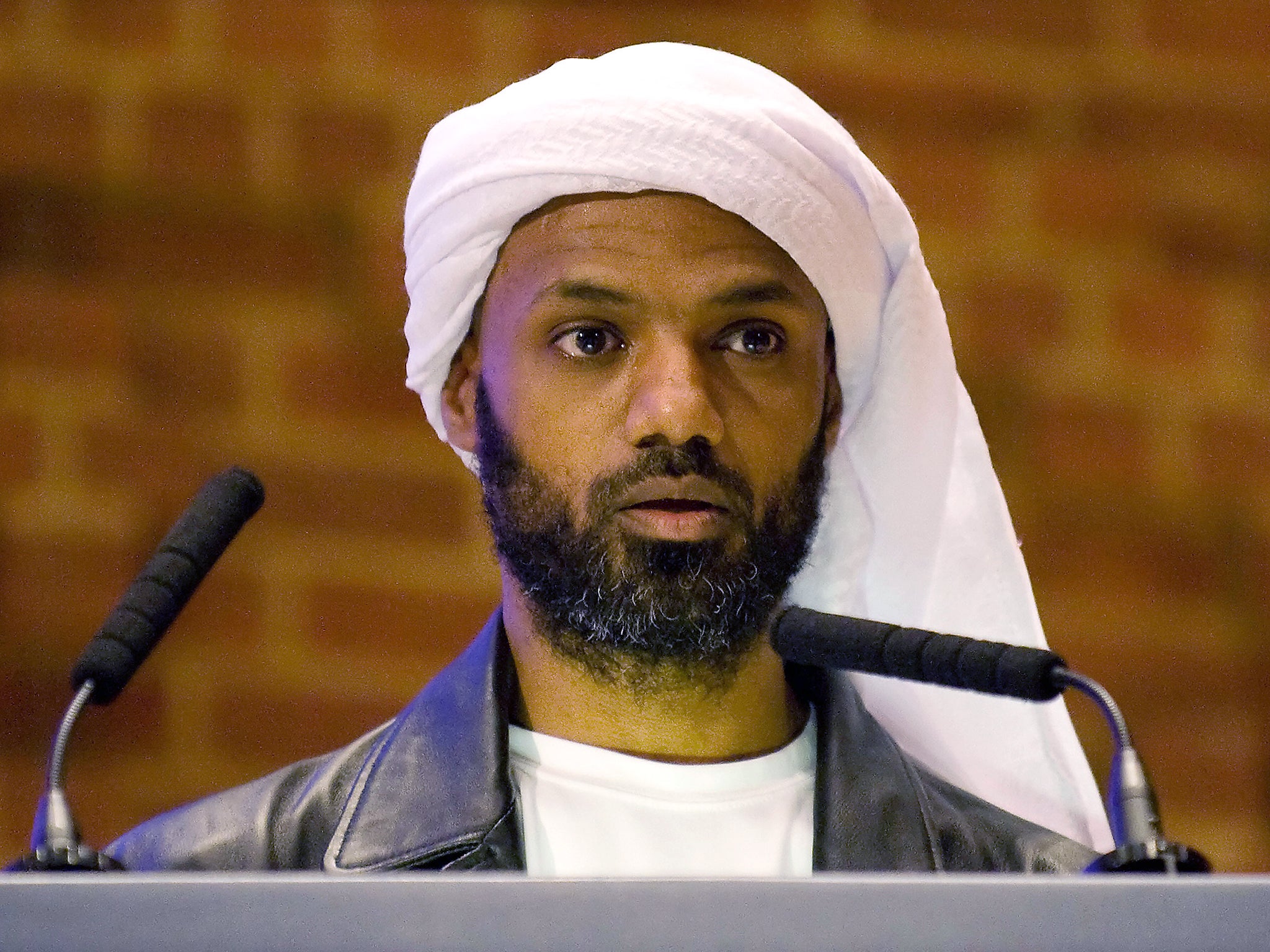A major new inquiry has just been opened and it could reveal just how complicit the UK was in CIA torture
Lawrence Wilkerson, former chief of staff to Colin Powell, told me that CIA prisoners had been held and grilled on the British territory of Diego Garcia. The Carolina commission may shine some much needed daylight on the UK’s role

Your support helps us to tell the story
From reproductive rights to climate change to Big Tech, The Independent is on the ground when the story is developing. Whether it's investigating the financials of Elon Musk's pro-Trump PAC or producing our latest documentary, 'The A Word', which shines a light on the American women fighting for reproductive rights, we know how important it is to parse out the facts from the messaging.
At such a critical moment in US history, we need reporters on the ground. Your donation allows us to keep sending journalists to speak to both sides of the story.
The Independent is trusted by Americans across the entire political spectrum. And unlike many other quality news outlets, we choose not to lock Americans out of our reporting and analysis with paywalls. We believe quality journalism should be available to everyone, paid for by those who can afford it.
Your support makes all the difference.A major new inquiry has just been launched into the role of the US state of North Carolina in the CIA’s torture and rendition of terrorism suspects after 9/11. The CIA apparently used an aviation contractor based in North Carolina to fly kidnapped captives to secret prisons around the world, where they were brutally tortured. It is estimated that at least thirty four individuals were transported by the CIA front company, Aero Contractors, including a number of Britons.
Aero’s involvement in the CIA program was first revealed in 2005, prompting local activists to press for an official investigation. But, despite repeated meetings with state officials, including North Carolina’s Attorney General, no action was taken. According to Dr Christina Cowger, chair of the inquiry’s board, they were “taking their cue” from President Obama, who had decided in 2009 not to prosecute Bush officials. Their lack of cooperation led to the formation of a citizens’ inquiry, the North Carolina Commission of Inquiry on Torture.
After years of preparation, that inquiry is now ready to go. It is led by several commissioners, including some with high-level government service. At a briefing for reporters on Wednesday, Jennifer Daskal, one of the commissioners and a former official in President Obama’s Justice Department, explained that the inquiry was “important” due to the “relative lack of significant accountability” for CIA wrongdoing so far and “particularly important” in light of President Donald Trump’s willingness to consider reviving CIA torture.
The commissioners will meet in the coming weeks to establish the scope of their work. Then there will be an investigation, including interviews with witnesses such as former government officials, detainees, legal and medical experts, and others. The inquiry does not have access to classified information, but new documents may be acquired through the Freedom of Information Act. At the end of this year there will be a public hearing, and the commission’s full report will be completed in 2018.
“This is a very important effort,” said Col (ret.) Lawrence Wilkerson, another commissioner and former chief of staff to Secretary of State Colin Powell. “We might even shame Washington into some action or discourage the present administration from returning to torture and rendition”. The inquiry may also help resolve some unanswered questions about the rendition program, according to Christina Cowger. It is still unknown which prisoners were on some of the flights, for example, and the commission could provide answers.
It might also illuminate the part played by foreign states, such as Britain. Some of the detainees rendered by Aero Contractors were British, including Binyam Mohamed, who was flown to Morocco in 2002 and tortured with UK complicity. There have also been rumours that the CIA detained captives on the British territory of Diego Garcia. Lawrence Wilkerson made headlines in 2015 when he told me that CIA prisoners had been held and grilled on the island. But the UK government has not yet conducted a thorough inquiry into rendition. The Carolina commission may shine some much-needed daylight on the UK’s role.
“Certainly the UK will be brought into this,” said commissioner David Crane, a professor at Syracuse University College of Law and founding chief prosecutor of the Special Court for Sierra Leone. Other nations which held detainees transported by Aero Contractors, such as Morocco and Poland, will also be examined. The inquiry may help lift the lid on how many countries participated in the program. It was believed that 54 were involved, but new research shows that 15 more countries, including France and Japan, cooperated.
Aero Contractors still operates in North Carolina, according to Christina Cowger, and has “only increased in size”. It is unclear if the company continues to work for the CIA, but Cowger won’t rule it out. “It’s perfectly possible they’re carrying out covert activities.” President Obama did not end rendition when he took office in 2009, and the inquiry may examine his record, too. The Trump administration, which appears to have endorsed the practice, may also come under scrutiny.
The inquiry is unlikely to result in any criminal investigations, given the history of impunity for CIA torture so far. But disclosures of new information could fuel litigation and serve as a “catalyst for further action”, David Crane told me. Jonathan Freeman, another commissioner and a fellow at the Truman National Security Project, hopes that the inquiry will create a “transparent process” and effect “a change in policy, even on a subtle level”. But the going might be tough, especially with Trump in the White House.
“We’ll be fighting an uphill battle,” Freeman told me. “There’s always resistance to these kinds of things.”
Join our commenting forum
Join thought-provoking conversations, follow other Independent readers and see their replies
Comments